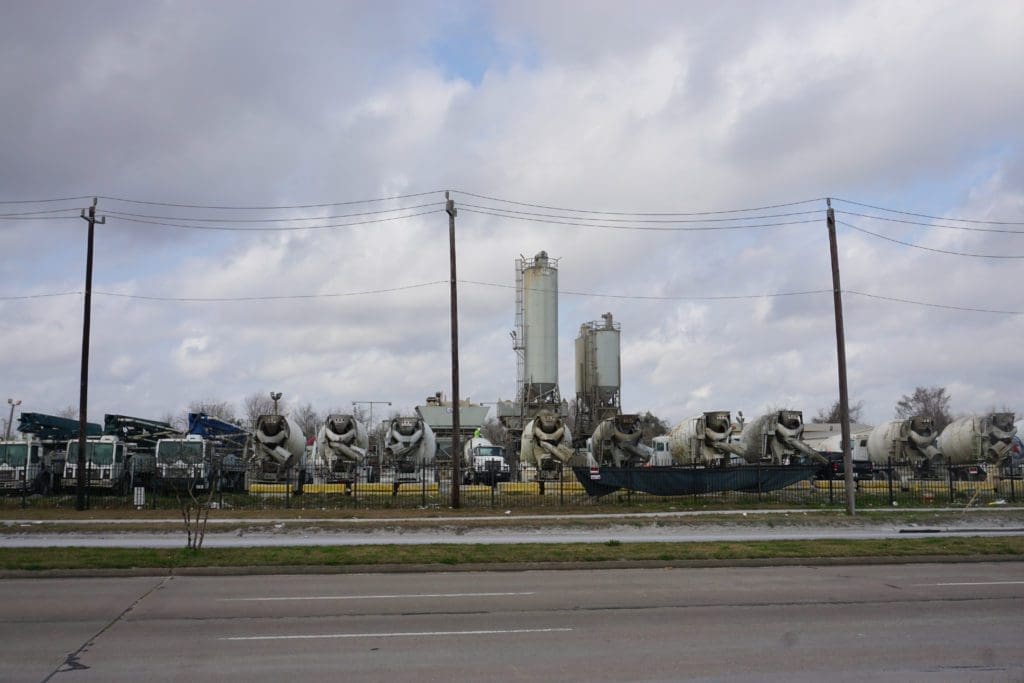AirMail - Concrete Batch Plant/Aggregate Processing Permits
Open Concrete Batch Plant and Other Aggregate Processing Permit Applications
Do you have questions or need more help creating your comments? Email us at [email protected]. We may also be able to support/represent you if you are interested in participating in a hearing to challenge this permit.
Please make sure to contact your elected officials about your concerns regarding this proposed facility. They have networks and influence to effect change, but they need to hear from you first! Not sure who represents you? Check here.
Torres Brothers Ready Mix, Inc: Permit Renewal No. 72039
APPLICATION Torres Brothers Ready Mix, Inc., has applied to the Texas Commission on Environmental Quality (TCEQ) for renewal of Registration No. 72039, for an Air Quality Standard Permit for Concrete Batch Plants, which would authorize continued operation of a Concrete Batch Plant located at 4247 Fuqua Street, Houston, Harris County, Texas 77048.
Immediate actions and help documents:
⚠️ ACTION: Submit public comments TODAY
Resources:
⚠️ ACTION: Contact your representatives to request a public meeting.
State Representative: Alma Allen 713 – 776 – 0505
State Senator: Borris Miles 281-261 – 2360
The TCEQ must organize a public meeting at the request of local State legislators.
Resources:
Elected Officials Call Script
Hi, my name is ___________ and I reside in your district.
Torres Brothers Ready Mix, Inc has applied for a renewal of their air quality permit for their facility near me.
Tell your representative why the issue is important to you. Include a personal story about how it affects you, your family and/or your community.
Please contact TCEQ to request a public meeting so that our concerns can be heard.
Application by Texas Concrete Enterprise, L.L.C.: Permit Renewal No 116476
Texas Concrete Enterprise, L.L.C., has applied to the Texas Commission on Environmental Quality (TCEQ) for renewal of Registration Number 116476, for an Air Quality Standard Permit for Concrete Batch Plants, which would authorize continued operation of the Concrete Batch Plant located at 3315 Carr Street, Houston, Harris County, Texas 77026-4505. The existing facility is authorized to emit the following air contaminants: particulate matter including (but not limited to) aggregate, cement, road dust, and particulate matter with diameters of 10 microns or less and 2.5 microns or less.
Immediate actions and help documents:
⚠️ ACTION: Public Meeting details forthcoming
- Thanks to all who submitted public comments, Senator Carol Alvarado and Council Member Dr. Letitia Plummer have requested public meetings for this facility.
Julpit Inc. – New Air Quality Permit No. 174419
Jilpit Llc, 1020 West Loop N, Houston, TX 77055-7255 has applied to the Texas Commission on Environmental Quality (TCEQ) for an Air Quality Standard Permit, Registration Number 174419, which would authorize construction of a permanent rock and concrete crusher. The facility is proposed to be located at the following driving directions: from the intersection of Texas Highway 6 and Farm to Market Road 521, go south on Farm to Market Road 521 for approximately 3.8 miles and turn right onto the site, Juliff, Fort Bend County, Texas 77583. This link to an electronic map of the site or facility’s general location is provided as a public courtesy and not part of the application or notice. For exact location, refer to application. https://gisweb.tceq.texas.gov/LocationMapper/?marker=-95.479555,29.453962&level=13.
Immediate actions and help documents:
⚠️ ACTION: Attend a Public Meeting on August 20, 2024 at 7 PM at the Restoration City Life Center
- Thanks to all who contacted their representatives, Senator Borris Miles has requested a public meeting!
Talking points:
What are Concrete Batch Plants and why are they an air quality concern?
Concrete batch plants are facilities that mix cement, sand, and aggregates with water to create the concrete used to construct bridges, buildings, roads, and more. While these projects are often necessary, living near one of these facilities can significantly impact your health and quality of life in a number of ways. Currently, there are no meaningful restrictions on where these facilities are constructed relative to homes, schools, parks, and other places where people live, work, and play.
While concrete batch plants are the most common aggregate-processing facility in Houston, there are other types of facilities that process aggregates and have similar concerns. These include asphalt plants, hot mix asphalt plants, and concrete crushers.
Concrete batch plants (and other aggregate processing) produce a lot of dust, especially the smallest and most difficult to detect dust, known as fine particulate matter, or PM2.5. These particles are able to penetrate deep into the lungs and may enter your bloodstream. This kind of pollution can pose serious health risks:
- It can lead to heart and lung disease, as well as cancer, and is known to affect lung development in children;
- Is known to trigger or worsen chronic diseases such as asthma, heart attack, bronchitis, and other respiratory problems;
- Has been associated with a higher risk for birth defects when pregnant people are exposed;
- It may cause immediate or delayed irritation
Concrete batch plants (and other aggregate processing) significantly increase the presence of heavy-duty vehicles on neighborhood roadways. The noise, traffic, wear and tear of local roadways makes living and travel for residents unsafe and unbearable. Diesel-fueled vehicles within the heavy-duty fleet emit black carbon and nitrogen oxide into residential neighborhoods. Diesel exhaust contains both very small particles and 40 chemicals that are classified as “hazardous air pollutants” under the Clean Air Act. The pollution in the exhaust can aggravate asthma and allergies, as well as cardiovascular and respiratory disease. Vehicle emissions are still present and harmful even when you can’t see the exhaust.
If the facility operates 24 hours a day, 7 days a week, as would be allowed by the permit, you may be subject to 24/7 exposure to harmful air pollutants that can exacerbate existing health conditions.
The TCEQ’s spotty history in regulating Concrete batch plants (and other aggregate processing) facility operations creates uncertainty around any CBP’s ability to operate responsibly and prevent anticipated impacts to nearby residents. In 2021, Harris County Pollution Control issued over 80 violation notices after conducting 149 inspections of Harris County concrete batch plants (and other aggregate processing).
In Harris County, concrete batch plants (and other aggregate processing) are predominantly located in communities of color and with lower incomes. Some of these facilities are located in residential areas and neighborhoods, close to schools, parks, and homes. The surrounding residents are shouldered with the burden of breathing dust and polluted air.
Please note: While we encourage you to bring up any concerns when challenging a permit, please keep in mind that the TCEQ will be concerned with air pollution impacts to health and environmental welfare. We recommend that you focus your arguments on the possible impacts to your health and quality of life.

